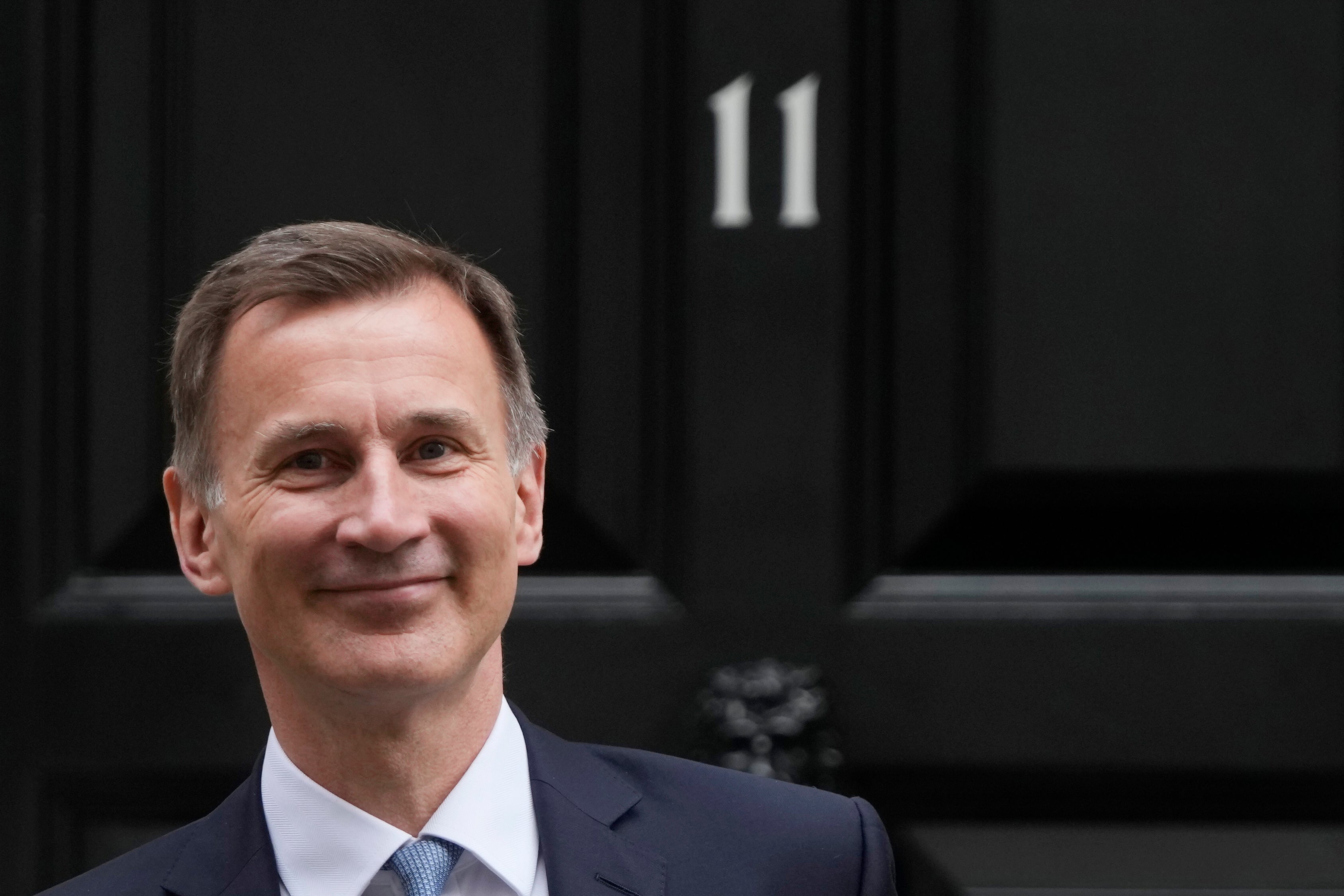Early indications of what might be in this autumn statement do not bode well
Editorial: An inheritance tax cut combined with a mean-minded squeeze on benefits would be a disastrous choice

A year ago, Jeremy Hunt restored order to the public finances, ensuring that those with the broadest shoulders carried the heaviest burden. He extended the top rate of income tax to everyone earning more than £125,000 a year. He extended the windfall tax on oil and gas companies.
He made sure that the Treasury chart of the “distributional impact” of all his tax rises showed that those on higher incomes paid a greater share of their incomes than the lower paid.
That is why it is surprising and disappointing that the first measure of Wednesday’s autumn statement that has been pre-announced by the chancellor is a mean-minded assault on the poor. On Friday, Mr Hunt said that he would be changing the rules to deny free prescriptions to benefit claimants who fail to show that they are actively seeking work.
This is gesture politics of the worst kind, accusing some of the poorest people in the country of “coasting” on benefits. The penalties for claimants who fail to attend interviews are already so severe that they have not just contributed to the rise in people using food banks, but are also suspected of driving people into claiming long-term sickness benefits. To use access to healthcare as a disciplinary measure in the benefits system is grotesque, and is plainly designed to win a day’s headlines in the authoritarian Conservative press rather than to make any difference to the welfare budget.
If Mr Hunt is running so scared of the authoritarian wing of his own party, it does not bode well for the rest of the autumn statement.
There has been persistent and apparently well-informed speculation in recent weeks that the chancellor and prime minister are considering a cut in inheritance tax. This is considered in some quarters to be “clever politics” because the Treasury could be giving up a relatively small amount of money for a politically resonant tax cut.
Inheritance tax is one of the most unpopular taxes among the general public, although few of us will end up paying it. The principle seems to offend a deep sense of fairness, despite the egalitarian argument for taxing the patently unearned gains of the beneficiaries of inheritance.
However, there are even more unpopular taxes, and it would be even cleverer politics to prioritise them if and when tax cuts become a responsible option – which is not this year or next.
It must be suspected that, in practice, a tax cut that overwhelmingly benefits the rich would cost the Conservatives votes if introduced by Mr Hunt and Rishi Sunak, whose personal wealth already opens them to the charge of being “out of touch”. Especially if they are seen to be egged on by Boris Johnson, who also appears to have a direct interest in the subject.
And especially because the contrast with turning the screw of meanness in the benefits system would be too blatant. It is already too much for Michael Heseltine, a One Nation Conservative who called the plan to refuse free prescriptions to “coasting” benefit claimants “hate politics”.
It seems more likely, however, that Mr Hunt will relegate an inheritance tax cut to the realms of a distant aspiration, while focusing in the year before an election on measures that the Labour Party would find it harder to oppose. Now is not the time for tax cuts, regardless of Mr Hunt’s careful choice of words to The Daily Telegraph on Saturday: “There is a path to reducing the tax burden.”
For one thing, the autumn statement is supposed to be about spending plans rather than taxes; but fiscal events these days have a tendency to blur into one another, and it is quite possible that the chancellor will use this one to announce tax changes that will take place in April.
It would be irresponsible to cut taxes at all in the foreseeable future, with public services in such a terrible state and the national debt rising. But if the chancellor wants to offer the distant hope of tax cuts, he must make sure that they offer greater relief to people on lower incomes.






Join our commenting forum
Join thought-provoking conversations, follow other Independent readers and see their replies
Comments